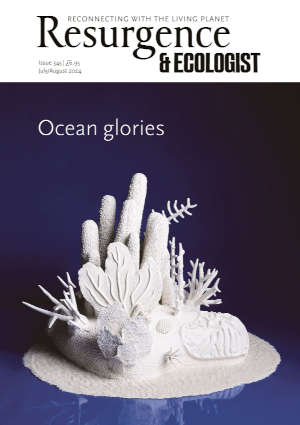What would you do if you ruled the world for one day? Would you end all wars? Or would you pass crucial laws to stop global heating? This thought experiment is the central premise of If I Ruled the World. A bi-weekly podcast, it explores the world’s biggest issues with key experts. Hosted by Gillian Burke, a biologist, presenter and voice-over artist, it aims to unlock “the secrets of profound systemic change” to make the world a better place and figure out “how to make it a reality”.
“No matter who you are, no matter whether you’re left or right, up, down, whatever the politics, I’m willing to stick my neck out and say – I think this is one thing we can all agree on – things could be better,” Burke says, introducing the podcast and setting the tone for the series. Episodes explore a wide range of topics: from making ecocide a crime under international law, to the tech industry’s exploitative practices, Indigenous farming wisdom, and the impact of solar energy on biodiversity conservation.
In each hour-long conversation, knowledgeable guests join Burke to break down complex, and often overwhelming, themes of interconnected global disorder. The conversations are nuanced, historically reflective and relatable, making them accessible to listeners from all backgrounds. A real highlight of the podcast is the show notes, which helpfully list conclusions and action points from each episode. Evidently the producers are invested in solution-oriented storytelling.
Despite laying out a roadmap to individual issues, the podcast at times misses an opportunity to fully address and centre the crux of most global problems – the distribution of power. How does it flow, and where does it concentrate? Though building our collective knowledge is vital, I believe the biggest obstacle to global justice is that those who have the answers – the activists, experts, scientists and organisations – struggle to access the political power needed to enact meaningful change, locally and internationally.
There is, however, a detailed examination of power dynamics in certain episodes. One such instalment delves into the origins of Somali pirates and their resistance to illegal fishing and waste dumping in nearby waters amid civil war. Yet other episodes, such as the conversation about eco-leadership, would benefit from analysis of the immense wealth and power of big polluters and how their lobbies currently affect party politics. This could thus demystify why – as the podcast’s name promises – those who do know how to rule the world democratically can’t.







